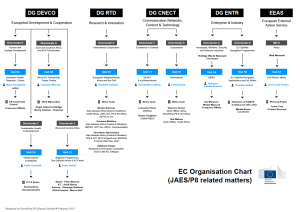2013
17
Cloud computing key to improving literacy in Africa
In rural areas in Africa the choice of books can be very limited because sending books away from the city means transporting bulky boxes by road, which is rarely economical for publishers.
Going digital could help solve the distribution problem, but tablets have low penetration in Africa. In fact, with three quarters of the world’s 6 billion mobile phone subscriptions found in developing countries, it is the humble mobile phone that has the potential to become the world’s most popular e-reader.
A book app launched by Worldreader, an education and literacy charity, is trying to access this potential. The app contains thousands of free books, from romance novels to mathematics textbooks. But rather than running on the latest smartphone, it is designed for the feature phones and overcrowded 2G networks of much of Sub-Saharan Africa. The app can be accessed through biNu, a free mobile software platform that gives users access to cloud-based internet services and apps.
Moving as much of the processing to the cloud’s servers, rather than on the phone, allows biNu to work at a speed which the company claims is ten times faster than regular mobile web browsers. After rendering graphics and text on the cloud, the data is sent back over the network as tiny images. Each image contains instructions of where it should go on the screen and the complete mosaic comes through to the phone as only one or two packets of data of up to one kilobyte each. Information is never sent twice, as the servers remember what has been sent before and provide only the new instructions needed to change the content on the screen. Sending the data as images also has the advantage of allowing the text to be displayed in any language, regardless of what the phone was programmed to handle.
Highly compressed data also keeps the price down for the user, a crucial concern for many people in developing countries.
More…








